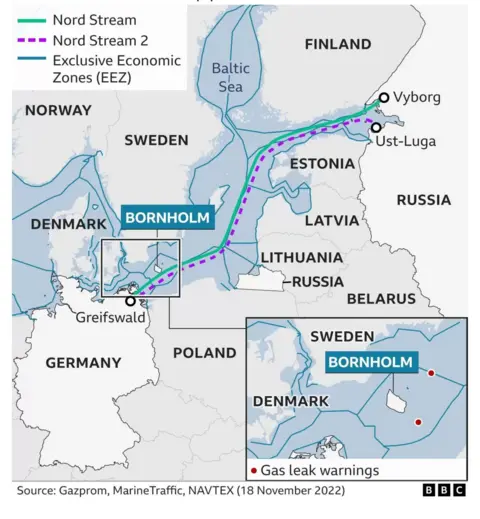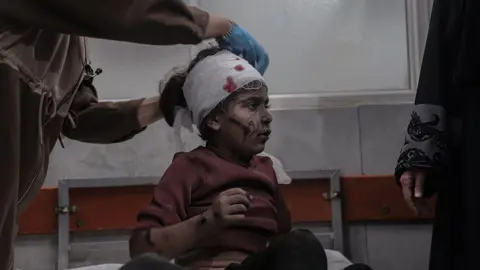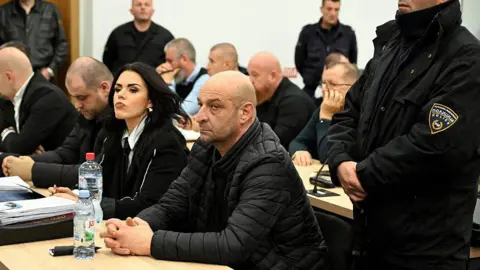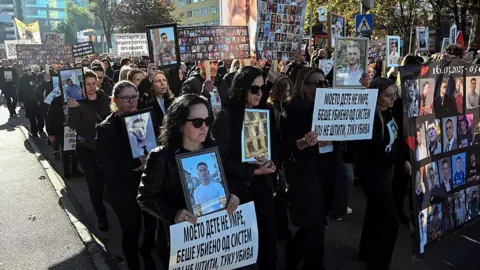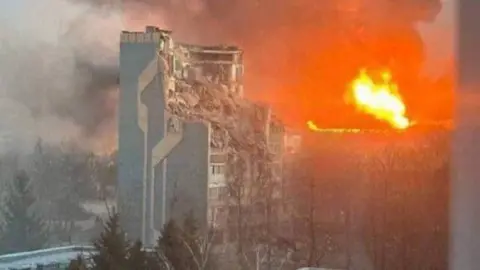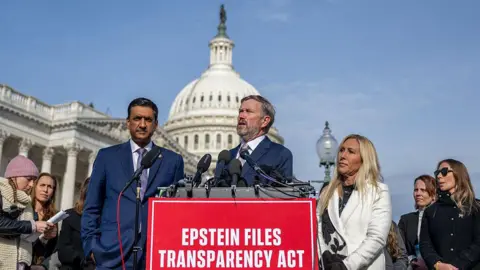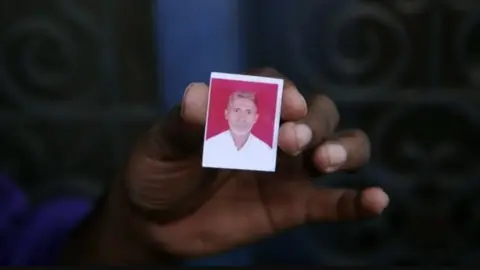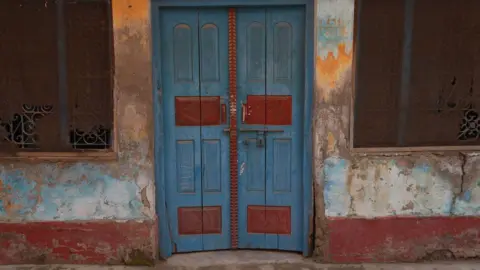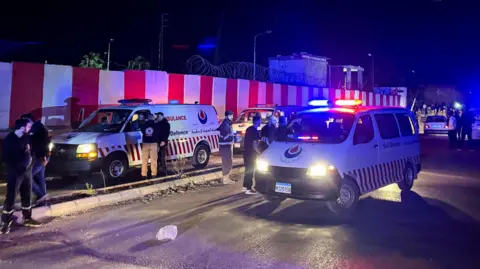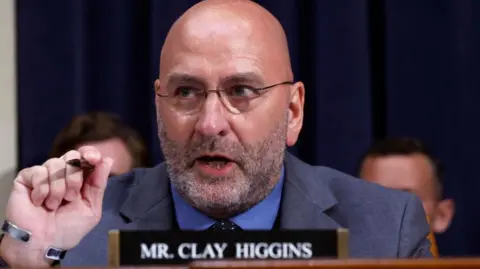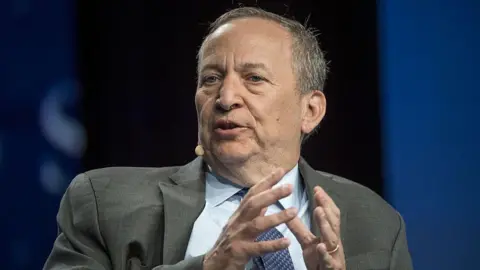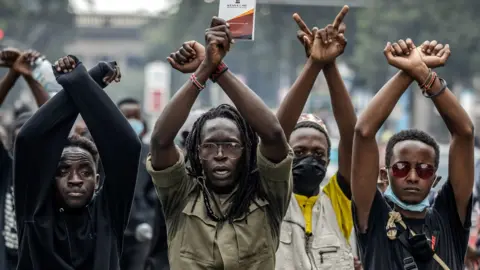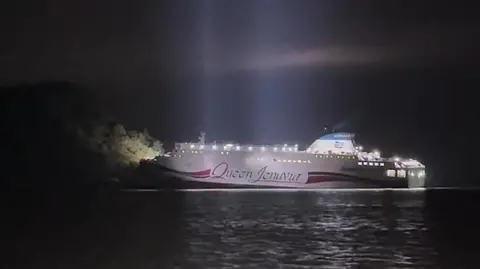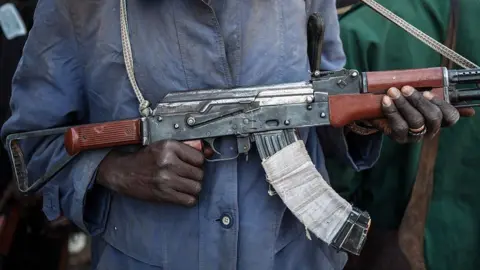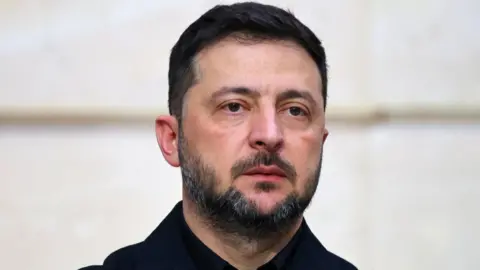Italy to extradite Nord Stream blast suspect to Germany

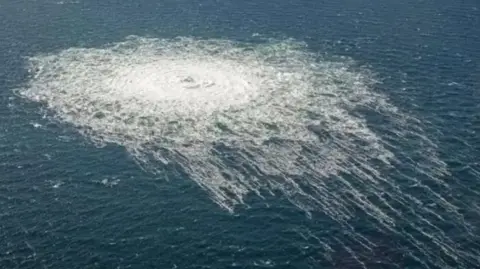 Danish Defence Handout
Danish Defence HandoutItaly's top appeals court has ruled that a Ukrainian man suspected of involvement in blowing up the Nord Stream gas pipelines between Russia and Germany should be extradited to Berlin.
There, former Ukrainian military officer Serhiy Kuznetsov will face a charge of anti-constitutional sabotage. He is due to be removed from Italy under German police escort in the next few days.
Prosecutors believe Mr Kuznetsov coordinated and led a group that planted explosives on the pipes deep beneath the Baltic Sea in 2022, though they have not disclosed any evidence.
The case has serious implications for relations between Ukraine and Germany, which is the biggest source of military aid for Kyiv in Europe.
Mr Kuznetsov's lawyer said his client "feels like a scapegoat" and is "very sad" that his government has not spoken out in his defence, or even confirmed that he was a serving soldier at the time of the blasts.
"If he carried out the attack, then he did so because he was ordered to do so because he was for sure a captain of the Ukrainian army," Nicola Canestrini said after Wednesday's hearing.
The BBC has seen a copy of Mr Kuznetsov's military ID among the court papers. He has not commented publicly on whether he was involved in the explosions.
"The Ukrainian government knows exactly where he was every day of September 2022," his lawyer said. "So, if he's innocent, why don't they say it? If he did it, why don't they say it? That's his question."
The BBC has approached government and security sources in Kyiv, but they have not commented.
Mr Kuznetsov was arrested in northern Italy in late August, at a glamping site near the city of Rimini where he had booked in for a few nights with his wife and two of their children.
His passport details were entered online at check-in, and in Italy that information is automatically transferred to the carabinieri, the local police.
Later that night, officers came knocking at the family's door.

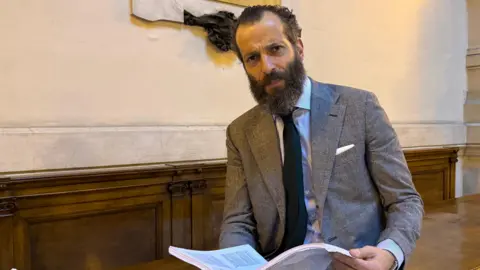
A month later, a second Ukrainian suspect was detained at his home close to Poland's capital Warsaw on another arrest warrant issued by Germany.
Volodymyr Zhuravlyov, an amateur deep-sea diver, has lived in Poland with his family since just before Russia's full-scale invasion of Ukraine in 2022.
He was held in custody for 17 days, but a court then refused to extradite him.
The judge delivered a passionate speech, arguing that no Ukrainian could be prosecuted for what he characterised as a legitimate act of self-defence against Russia's "bloody and genocidal" invasion of Ukraine.
In Italy, further from Ukraine, the mood and the politics are very different.
Mr Canestrini described the Italian appeal court's ruling as a "great disappointment", but said the fight for his client would now move to Germany - with the aim of having Mr Kuznetsov acquitted on the same grounds.
Many Ukrainians consider whoever did destroy Nord Stream to be heroes for taking out an important revenue source for Russia, and struggle to understand why Germany - a key ally of Ukraine - is pursuing this prosecution.
On Wednesday, one man stood outside the palatial courthouse in Rome wrapped in a Ukrainian flag and holding a poster that read: "Serhiy Kuznetsov is a defender, not a criminal."

